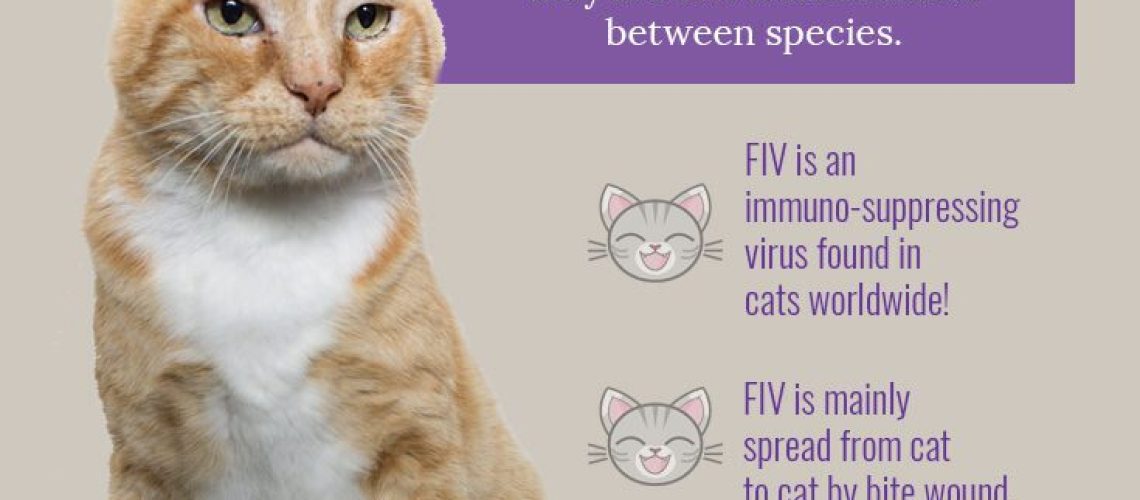Are you a proud cat owner? Do you want to ensure the health and well-being of your feline friend? Then, understanding Feline Immunodeficiency Virus (FIV) is essential! This captivating topic not only holds the key to protecting your beloved pet but also provides valuable insights into their overall health. By delving into this subject, you'll gain an arsenal of knowledge that will empower you to keep your cat safe from this silent threat. So, let's embark on this journey together and discover the secrets to safeguarding your furry companion's health!
Key Takeaways:
- Feline Immunodeficiency Virus (FIV) is a viral infection that affects cats and weakens their immune system.
- FIV is primarily transmitted through bites from infected cats during fights or through mother-to-kitten transmission.
- There is no cure for FIV, but it can be managed with proper veterinary care and by minimizing the cat's exposure to other infections.
- Vaccination against FIV is available, but it may not be recommended for all cats. Consult with your veterinarian to determine if your cat should be vaccinated.
- Preventing your cat from roaming freely outdoors and spaying/neutering them can significantly reduce the risk of FIV transmission.
Understanding Feline Immunodeficiency Virus (FIV) and Its Effects on Cats
What is Feline Immunodeficiency Virus (FIV)?
Feline Immunodeficiency Virus (FIV) is a viral infection that affects cats. It weakens their immune system, making it harder for them to fight off infections and diseases. The virus attacks the white blood cells, which are responsible for protecting the body against harmful invaders.
How does FIV affect cats?
When a cat is infected with FIV, it may not show any symptoms initially. However, over time, the virus can cause various health problems. Cats with FIV are more prone to developing infections, dental issues, skin conditions, and certain types of cancer. They may also experience weight loss, lack of appetite, diarrhea, and respiratory problems. It's important to note that FIV cannot be cured but can be managed with proper care and treatment.
Transmission and Prevention of Feline Immunodeficiency Virus (FIV) in Cats
How is FIV transmitted?
Feline Immunodeficiency Virus (FIV) is mainly transmitted through deep bite wounds from an infected cat during fights or mating. It can also be passed from an infected mother cat to her kittens during birth or through nursing. Sharing food bowls, litter boxes, or grooming tools does not typically spread the virus unless there is a severe injury involved.
Preventing FIV in cats:
- Keep your cat indoors: By keeping your cat indoors and away from other potentially infected cats, you can greatly reduce the risk of exposure.
- Spay/neuter your cat: This helps prevent roaming behavior and reduces the chances of fighting with other cats.
- Vaccination: There is no vaccine available to completely prevent FIV, but vaccinating your cat against other diseases can help strengthen their immune system and reduce the risk of complications from FIV.
Managing Feline Immunodeficiency Virus (FIV) in Cats: Treatment Options
How is FIV managed?
While there is no cure for Feline Immunodeficiency Virus (FIV), there are ways to manage the condition and improve a cat's quality of life. This includes:
- Regular veterinary check-ups: Routine check-ups can help monitor the cat's health and detect any potential issues early on.
- Proper nutrition: Feeding a balanced diet that meets the nutritional needs of an FIV-positive cat can help boost their immune system.
- Medications: Depending on the symptoms and complications, medications such as antibiotics or antiviral drugs may be prescribed to manage infections or secondary conditions.
Providing a stress-free environment:
Reducing stress levels can benefit cats with FIV. Creating a calm and comfortable environment, providing enrichment activities, and minimizing exposure to potential stressors can help support their overall well-being.
Risk Factors for Feline Immunodeficiency Virus (FIV) in Cats: Who is Most Vulnerable?
Which cats are more vulnerable to FIV?
Outdoor cats who engage in fights with other cats are at higher risk of contracting Feline Immunodeficiency Virus (FIV). Male cats, especially unneutered ones, have a higher likelihood of getting infected due to their territorial behavior and tendency to fight for mates. Kittens born to infected mothers also have an increased risk of acquiring the virus.
Cats at lower risk:
Cats that live exclusively indoors and do not come into contact with potentially infected cats have a significantly lower risk of contracting FIV. Neutered/spayed cats who do not engage in fights are also less vulnerable to the virus.
Recognizing the Signs and Symptoms of Feline Immunodeficiency Virus (FIV) in Cats
Common signs of FIV:
- Persistent fever
- Loss of appetite
- Weight loss
- Poor coat condition
- Swollen lymph nodes
Other symptoms:
In addition to the common signs, cats with FIV may experience recurring infections, dental problems, chronic diarrhea, respiratory issues, and slow healing of wounds. However, it's important to note that these symptoms can also be indicative of other health conditions, so a proper diagnosis from a veterinarian is crucial.
Feline Immunodeficiency Virus (FIV): Can It Affect Humans or Other Animals?
FIV and humans:
Feline Immunodeficiency Virus (FIV) cannot infect humans. It is a species-specific virus that only affects cats. Therefore, there is no risk of transmission between cats and humans.
FIV and other animals:
The primary mode of transmission for FIV is through deep bite wounds during fights or mating among cats. Other animals, such as dogs or rabbits, are not susceptible to contracting FIV from infected cats.
Protecting Your Cat from Feline Immunodeficiency Virus (FIV): Vaccinations and Veterinary Care
Vaccinations for FIV:
Currently, there is no vaccine available that provides complete protection against Feline Immunodeficiency Virus (FIV). However, vaccines for other diseases like feline leukemia virus (FeLV) can help strengthen the immune system and reduce the risk of complications from FIV.
The importance of veterinary care:
Regular veterinary check-ups are essential for maintaining your cat's overall health. A veterinarian can provide guidance on preventive measures, monitor the cat's immune system, and detect any potential issues early on. They can also recommend appropriate treatments or medications to manage FIV-related complications.
In conclusion, it is important to protect your cat from Feline Immunodeficiency Virus (FIV) by keeping them indoors, getting them vaccinated, and regularly visiting the veterinarian. By taking these precautions, you can ensure a healthier and happier life for your feline friend.
How long can a cat live with feline immunodeficiency?
Cats with FIV have been found to have similar life expectancies as cats without the virus. Research conducted in 2010 and 2022 found no evidence of decreased lifespans associated with an FIV diagnosis. In fact, cats can live without showing any symptoms for many years or even their entire lives.
Do indoor cats need FIV vaccine?
The vaccines for Feline immunodeficiency virus (FIV) and Feline Leukemia (Felv) offer protection against viral infections that can be transmitted through close contact. These vaccines are typically recommended for cats that spend time outside.
How can I boost my cat's FIV immune system?
Giving your cat vitamins can help strengthen its immune system. Some recommended vitamins for cats include vitamin E, vitamin A, vitamin C, selenium, and zinc. It is important to consult with your veterinarian to determine the appropriate dosage for your individual cat. Your vet may suggest giving your cat around 3 to 5 ml of LC-vit or 5 ml of Nutri-Plus Gel on a daily basis.
Can a cat with FIV live with other cats?
Is it possible for FIV-negative and FIV-positive cats to coexist? Absolutely, as long as the cats have a good relationship and don't engage in fights. To reduce the chances of a FIV-positive cat transmitting the virus to a FIV-negative cat, it is recommended to initially keep them in separate rooms until you are certain they won't fight.
What is the longest a cat has lived with FIV?
FIV cats require immediate veterinary attention for even minor symptoms. However, with proper care, many FIV+ cats can live a normal lifespan. Nowadays, it is not uncommon to come across FIV+ cats living for 15 years or longer.
Do cats with FIV suffer?
While cats infected with FIV may not show any symptoms for a long time, eventually their immune system weakens, making them susceptible to common bacteria, viruses, protozoa, and fungi that can lead to serious illnesses.

















